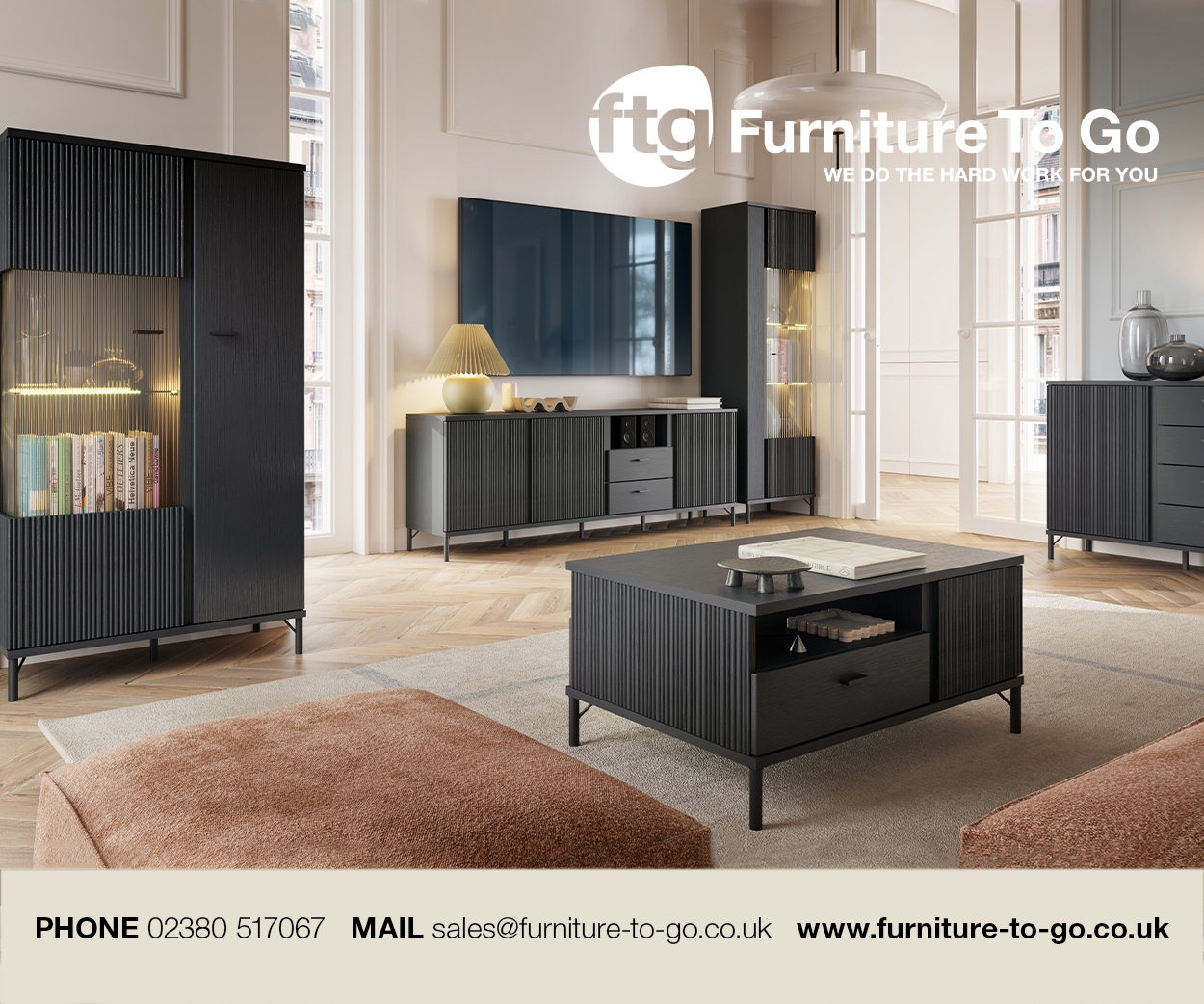A newcomer to the world of online shopping, Flitch is a free-to-use tool that enables users to browse over 250,000 products from more than 100 UK retailers to find their “perfect piece of furniture”. Combining AI and the expertise of human stylists, the platform offers a unique solution to an often-frustrating shopper journey, say Flitch’s founders, Uriel Tannen and Daniel Ufland …
What’s your background?
Uriel: I started my career with HSBC, before moving to a management consultancy focused on the technology and education sectors. However, my father is a trained interior designer, so interiors have always been in the family and I’ve grown up in an environment of helping people furnish their homes.
When my wife and I moved into our first home we found the task of furnishing it completely overwhelming. At first, we created moodboards with images from Instagram, Pinterest and Houzz to start planning our new home. But when we showed these to my father, he was able to home in on exactly what we liked, and really understood our taste.
That triggered a lightbulb moment, as I realised that without an expert guiding you, you’re really just working off of a ‘feeling’, which is often hard to articulate when you’re not immersed in the industry. For me, that’s when I started thinking that there should be a tool that can provide this service to the average consumer – and not just those who can afford a full interior design service.
Daniel: I’ve worked across a number of sectors including retail and the marketing division of an accountancy firm. More recently, I’ve been involved in the early days of a startup company developing a breakfast delivery app, and have owned my own business in a completely different sector.
My family had been in the furniture business for generations – my great-grandfather and grandfather were furniture manufacturers, and my grandfather moved into furniture retailing after their factories were destroyed during the Blitz. You could say that furniture is in my blood, and beyond that I have always had a fascination with interiors and how we can use technology to design homes.
Uriel and I met on the first day of secondary school when we were just 11, so we’d known each other for years before realising our shared passion for the idea of making furniture shopping simple – making us the perfect business partners.
Are there any other reasons you chose to target this sector in particular?
Uriel: We saw a real opportunity to solve a problem that we had both experienced first-hand. But we also realised that the furniture and interiors sector is an area that remains very traditional and doesn’t really provide the personalisation and transparency that modern shoppers have come to expect. We wanted to create a platform that would make furniture shopping easier and more enjoyable for everyone.
Daniel: We also believe that the furniture and interiors sector is ripe for disruption. As we’ve seen with other industries, the way that people shop for things has fundamentally changed over the last few years. Furniture is no different, and we want to be at the forefront of that change.
How does Flitch differ from the other shopping platforms already operating in the marketplace?
Uriel: I think the concept of a ‘platform’ in the furniture and interiors space is something that the market hasn’t yet fully digested, and as an industry we’re on a journey towards that.
However, our unique approach is to always consider what would make a better and simpler furniture shopping process. So firstly, we use a visual-led approach to discovering furniture. This means that we don’t just rely on text-based search terms, but that we also use AI to identify the distinguishing features of each piece of furniture.
This allows us to make more personalised recommendations, even when users don’t have the language to articulate their preferences. I think aggregation – making all furniture retailers discoverable in a single platform – is great, but shoppers need something more powerful to actually identify their preferences and navigate the vast and confusing marketplace.
Daniel: We also differ in that we combine personal recommendations with an interior styling service. This means that users can work with a stylist to create a personalised furniture shopping list. Working with a human means that the user has an expert to bounce ideas off, to ask questions, to send photos of items they’ve come across that they like.
And we think that human touch is really important when shoppers are making what is often a very expensive purchase. All three levels of our service – browsing the entire market, taking the style quiz for instant recommendations, and using our styling service – strive to tackle the two biggest problems when it comes to furniture shopping, namely the time it takes to find your perfect item, and the stress this often brings.
Can you outline your business model?
Uriel: Daniel and I put our savings into bringing our vision to life, and we’re quite proud to have got to where we are without needing to resort to venture capital or other fundraising avenues.
In terms of our business model, we make money through a few different channels. We do charge a limited fee for our human styling service, and also earn a commission on furniture items that are sold through our platform. A growing number of retailers pay to be featured on our platform. Finally, we also make money from the detailed and very specific trend data that we’re able to sell to furniture manufacturers and suppliers.
Describe your typical target shopper …
Uriel: Whilst we don’t exclusively market towards a particular niche, we do find that our typical target shopper is a 25-45 year-old woman. They’ll be living here in the UK, and would be quite familiar with online shopping. We also know that this demographic often expects to receive personalised recommendations from whatever it is they are buying or consuming online.
Give us an example of some of the key brands already on board, and your target pipeline …
Uriel: We currently have a number of key brands such as John Lewis, Habitat and Sofa.com on board, and we’re in talks with quite a few other brands too. We’re confident that we will be able to add even more to our platform in the near future.
Daniel: In terms of our target pipeline, we don’t have specific names on our wishlist, but we are looking to continue to build our portfolio to include a range of brands that cover the mass middle market and appeal to the average budget of most consumers. We are keen on championing smaller, independent brands that we can bring to new customers.
However, we are careful with who we work with, as they need to meet our standards on quality, value and reliability, as well as have a working product feed – and ideally, good imagery – for us to be able to ensure the best customer experience.
Read the rest of our interview with Flitch in September's issue.
Pictured: Uriel Tannen and Daniel Ufland, the founders of Flitch







